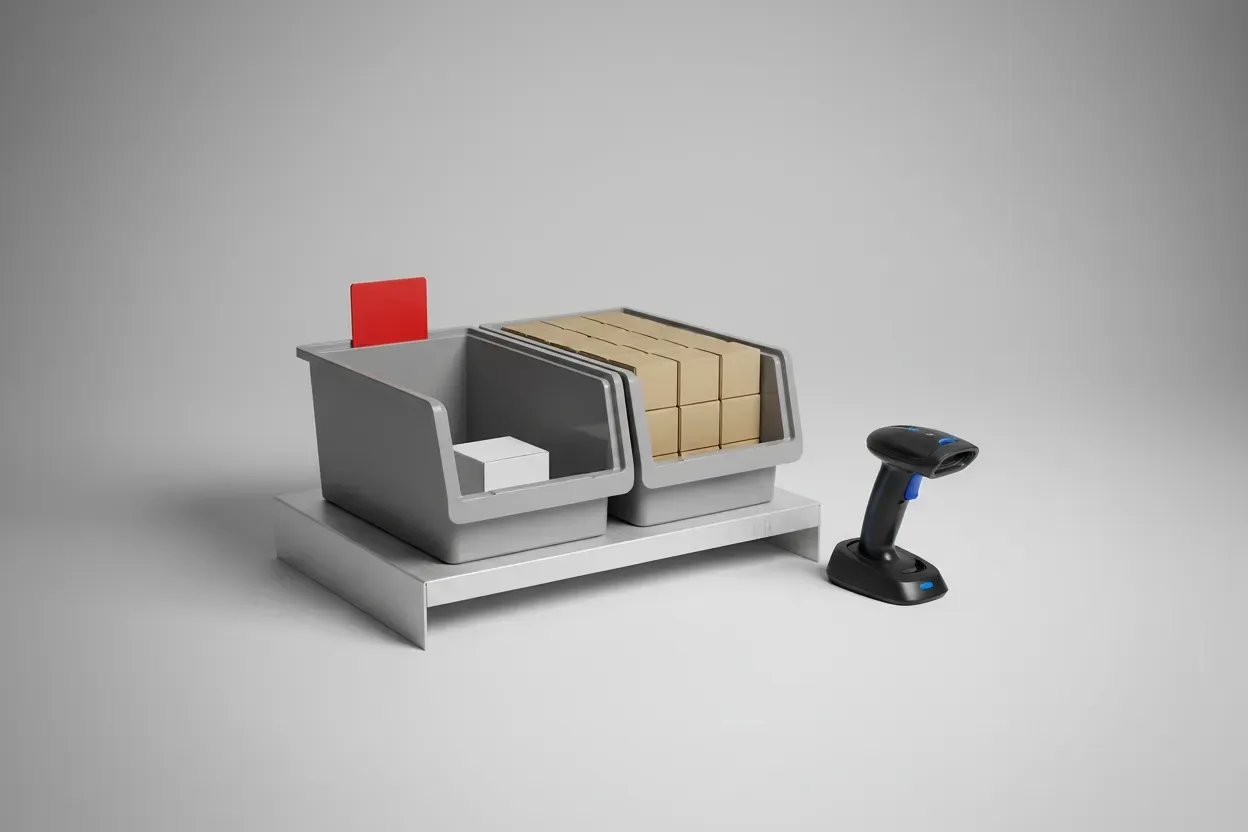How Do You Plan for and Manage Business Expenses Effectively?
In the quest for financial stability, insights from top executives like a CEO & Founder reveal strategies like utilizing budgeting tools to maintain control over expenses. Alongside expert advice, we’ve gathered additional answers that delve into various methods, including stringent cost control measures, to help you plan, track, and control your financial flow. From utilizing budgeting tools to enforcing cost control, discover a spectrum of strategies to secure your financial footing.
- Utilize Budgeting Tools for Stability
- Foster a Collaborative Financial Culture
- Employ a Three-Tier Financial Strategy
- Adopt Real-Time Expense Tracking
- Consult Financial Forecasting Models
- Conduct Regular ROI Analyses
- Justify Expenses with Zero-Based Budgeting
- Enforce Stringent Cost Control Measures
Utilize Budgeting Tools for Stability
At Startup House, we keep a close eye on our expenses by using budgeting tools and regularly reviewing our financial reports. By tracking our spending and comparing it to our revenue, we can make informed decisions on where to cut costs or invest more.
We also set clear financial goals and regularly monitor our progress toward them, adjusting our strategies as needed to ensure we stay financially stable. Remember, it’s not just about making money, but also about managing it wisely to sustain long-term success.
 Alex Stasiak
Alex Stasiak
CEO & Founder, Startup House
Foster a Collaborative Financial Culture
At Simply Noted, we emphasize the importance of a collaborative financial culture. All team members, regardless of their role, are encouraged to contribute ideas for cost-saving and efficiency improvements. This collective responsibility fosters an environment where financial prudence is a shared value, not just a mandate from the top.
By integrating our financial strategy with our company culture, we create a strong foundation that supports both our financial stability and our innovative endeavors. Our approach is dynamic, constantly evolving to meet the changing needs of our business and the external economic environment. This adaptability, underpinned by a strong, disciplined financial framework, sets Simply Noted apart as a resilient and forward-thinking company committed to sustainable growth and success.
 Rick Elmore
Rick Elmore
CEO, Simply Noted
Employ a Three-Tier Financial Strategy
Maintaining financial stability in any business requires meticulous planning, tracking, and controlling of expenses. A strategy that has proven effective involves a three-tier approach: budgeting, regular financial reviews, and the use of technology for financial management.
Firstly, detailed budgeting is essential. This involves forecasting both revenues and expenses for the upcoming period, taking into account historical data, market conditions, and future projections. The budget serves as a financial roadmap, guiding spending decisions and investment priorities. For example, a marketing agency might allocate a specific portion of its budget to client acquisition, based on past spending and its impact on growth, ensuring funds are directed towards areas with the highest return on investment.
Secondly, regular financial reviews are crucial for monitoring actual expenses against the budget. This involves monthly or quarterly meetings to review financial statements, analyze variances, and identify trends. It’s during these reviews that decisions are made to adjust course if necessary, such as cutting unnecessary expenses or reallocating funds to more productive areas. For instance, if a business notices a consistent underutilization of the office supplies budget, these funds could be redirected towards digital marketing efforts that yield a better return.
Lastly, leveraging technology for financial management can significantly enhance the efficiency and accuracy of tracking and controlling expenses. Software tools like QuickBooks, Xero, or FreshBooks offer features for budgeting, expense tracking, and financial reporting, enabling businesses to have real-time insight into their financial health. These tools facilitate the identification of spending patterns, help in forecasting, and ensure that financial data is easily accessible and understandable, allowing for timely and informed decision-making.
By combining these strategies—meticulous budgeting, regular financial reviews, and the use of technology—businesses can effectively plan, track, and control expenses, thus maintaining financial stability and supporting sustainable growth.
 Bruno Gavino
Bruno Gavino
Founder, CEO, CodeDesign
Adopt Real-Time Expense Tracking
In order to plan for and handle business expenses in an efficient manner, it’s crucial to adopt technology that allows for real-time expense tracking. This means having a system in place that automatically records transactions as they occur, giving a clear, up-to-date picture of where funds are being spent. This immediate insight helps to avoid overspending and also simplifies the review process when it’s time to analyze the budget.
With this kind of system, discrepancies can be spotted swiftly, and corrective action can be taken before small issues become larger problems. Ensure that your business utilizes real-time expense tracking to maintain financial health and keep your spending in check.
Consult Financial Forecasting Models
Successful financial management requires making informed decisions, and that often comes down to predicting future financial trends with the help of financial forecasting models. By examining past and current financial data, these models help businesses anticipate future revenue, costs, and market trends. This proactive approach allows for strategic planning and can help to mitigate risks by preparing for various financial scenarios.
It can be particularly useful when deciding whether to invest in new projects or to save for potential downturns. Stay ahead of the curve by regularly consulting financial forecasting models to guide your economic strategy.
Conduct Regular ROI Analyses
Managing business expenses efficiently often involves assessing the return on investment (ROI) for each expenditure to ensure profitability. This process includes evaluating how each expense contributes to generating revenue and achieving business goals. By understanding which expenses have the highest ROI, a company can allocate its resources more effectively to those areas that support growth and profitability.
Moreover, an ROI analysis can spotlight unnecessary expenses that can be cut down to improve the bottom line. Focus on prioritizing your business expenses by conducting regular ROI analyses, and use this information to guide your financial decisions for better outcomes.
Justify Expenses with Zero-Based Budgeting
One innovative approach to planning and managing business expenses is zero-based budgeting, which requires that all expenses be justified for each new period. Unlike traditional budgeting methods, this approach doesn’t use the previous year’s budget as a baseline, which often leads to reduced costs and increased financial discipline. By justifying each cost from scratch, unnecessary expenses can be more easily identified and eliminated.
Zero-based budgeting encourages managers to scrutinize all spending, fostering a culture of cost efficiency across the entire organization. Consider adopting zero-based budgeting to ensure every dollar you spend supports business objectives and drives value.
Enforce Stringent Cost Control Measures
Keeping business expenses in check is fundamentally about exercising strict cost control measures. This requires setting clear guidelines for what can be spent and by whom, along with regular monitoring and reporting to ensure these policies are being followed. By embedding accountability into the expense management process, it becomes easier to identify where costs can be contained or reduced without impacting the quality of goods or services.
It is also crucial for creating a culture where every team member understands the value of financial responsibility. Take the necessary steps to enforce stringent cost control measures and watch as your business streamlines operations and improves its bottom line.
Submit Your Answer
Would you like to submit an alternate answer to the question, “How do you plan, track, and control expenses to maintain financial stability?”







































